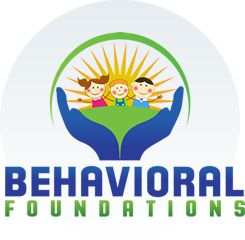About ABA Programs Answers to common questions about ABA.
What is included in an ABA program?
The initial consultation involves a meeting of the Behavior Analyst and family to determine what needs and goals are desired. Services can range from direct 1:1 therapy, to consultation and parent training. Once services are agreed upon, the Behavior Analyst or therapist will begin rapport building with the individual.
Rapport is extremely important for the effectiveness of program implementation by the therapist or Behavior Analyst. Rapport building is also called “pairing”, which is a process of creating a reinforcing and pleasurable relationship between therapist and individual, where the individual comes to view the therapist as not just the giver of reinforcement, but as actual reinforcement.
A skill assessment will be completed to identify the current academic and behavioral skills of the individual, as well as to identify areas for treatment. Each ABA program is unique to the individual and will be implemented, monitored and data analyzed on a routine basis.
When should ABA services be started?
According to the Behavior Analysis Certification Board, “Services should be provided as soon as possible after diagnosis, and in some cases services are warranted prior to diagnosis. Evidence suggests that the earlier treatment begins, the greater the likelihood of positive long-term outcomes. Comprehensive ABA treatment can result in reduced need for services as the child grows older. However, research also demonstrates that ABA is effective across the life span. Older individuals may need intensive and comprehensive treatment, especially if they present with dangerous behaviors. Research has not established an age limit beyond which ABA is not effective.”
What are socially significant skills and behaviors?
These are skills and behaviors we all need in order to navigate our environment and produce reinforcement in a reliable way. Examples of these are communication, adaptive living skills (such as self care, eating and toileting), academic skills, and social skills. A breakdown or lack of skill in any one of these areas can lead to maladaptive behaviors that make it difficult for a person to fulfill their daily tasks. ABA methods focus on increasing behaviors through reinforcement, teaching new and functional skills (such as communication and social skills), facilitate generalization of skills from one setting to another (such as from the home to the community or school), and decrease interfering behaviors (such as problem behaviors).
Who oversees my ABA program?
The state of Tennessee is currently working on a state license for Behavior Analysts as providers, as required by the passing of a bill in the summer of 2014. The idea is to regulate the ABA provider network in the state to protect the citizens and ensure best practice. However, under provisions of The Behavior Analysis Certification Board, it is required that a certified professional design, monitor and analyze treatment programs of individuals receiving ABA services if represented as a Board Certified Behavior Analyst(BCBA), this includes the supervision of any staff or therapist implementing the program.

 INSURANCE ACCEPTED!
INSURANCE ACCEPTED!